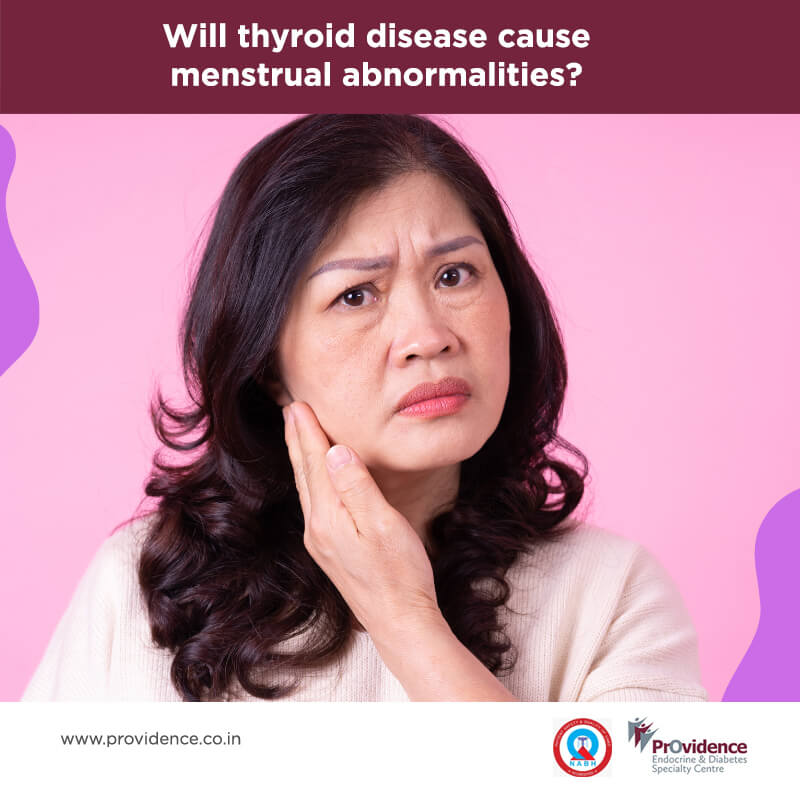It is common to find a thyroid disease when a lady gets investigated for menstrual abnormalities. It is prudent for doctors to check thyroid function while investigating anyone with menstrual problems. Menstrual problems can occur in both hypothyroidism and hyperthyroidism.
Women with significant hypothyroidism can have increased menstrual bleeds (menorrhagia) and irregular dates. If the thyroid disease is severe, some women may cease to have periods for a while. Some women with hypothyroidism may have a polycystic appearance of the ovaries. This should not be confused with polycystic ovary disease. Most of these changes can be reversed with proper dose titration of thyroxine.
Women with hyperthyroidism can have irregular periods and hypomenorrhea (less bleeding during periods). Some women with severe hyperthyroidism can have significant weight loss and this can lead to irregular periods. Rarely women with thyroid diseases may have premature ovarian failure. Both these diseases are autoimmune and hence can occur together. Physicians treating people with thyroid disease and menstrual problems should consider this possibility.



